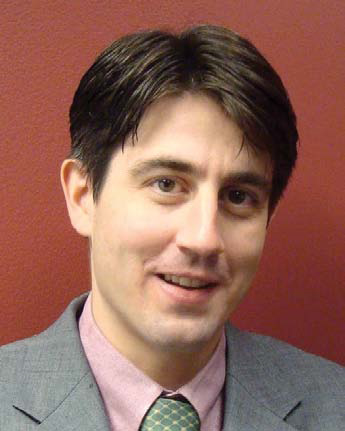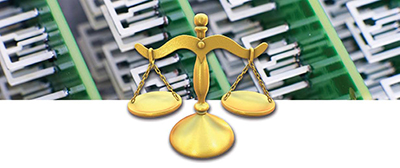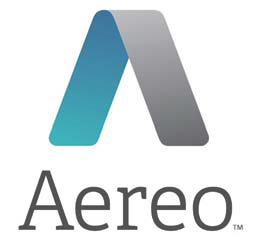Attorney Argue Aereo Legality—YES
The professional video industry's #1 source for news, trends and product and tech information. Sign up below.
You are now subscribed
Your newsletter sign-up was successful

John Bergmayer, senior staff attorney, Public Knowledge

WASHINGTON—A lot of people can’t get over the tiny antennas. But Aereo is about more than that—it’s about whether people have the right to access their own content on the Internet. Aereo should win its case in the Supreme Court because it does nothing more than give people convenient access to programming that the broadcasters already give them, for free.
The idea behind Aereo is very simple: It’s an antenna rental service, not an all-purpose video subscription service. It lets people use a TV antenna that is centrally located, instead of putting one behind their TV sets, or on top of their roofs. If people are allowed to watch TV for free over-the-air, why should it matter where the antenna is located? If Radio Shack doesn’t infringe copyright by selling users a digital TV antenna, why should Aereo infringe by renting them one?
PUBLIC VS. PRIVATE
The legal question that the Court will decide hinges on the distinction between a “public” and a “private” performance. Public performances fall within the scope of copyright; private ones do not. Only a lawyer could think that a transmission from a single antenna to a single user—that is entirely controlled by the user—is somehow “public.”
This has nothing to do with “fair use.” A fair use falls within the scope of copyright, but a user can do it without permission. The test for whether a use is fair involves weighing a number of factors, such as “the purpose and character of the use.” There are guidelines that users can follow, but some fair use questions are complicated, and require a judge to carefully weigh evidence and consider nuanced legal arguments.
By contrast, most ways that people interact with copyrighted content everyday are legal, simply because they fall outside the scope of copyright law. You don’t need a “license” to read a book or watch a movie at home. Similarly, you shouldn’t need a license to use one of Aereo’s antennas—and Aereo shouldn’t need one, either.
Of course, it’s true that Aereo’s service could enable some fair uses, like recording programs to watch them later (time-shifting). But the case hinges on the public/ private distinction, and whether copyright should expand to control yet more of how we interact with content, and regulate yet more technology. If Aereo loses, swathes of online activities that had previously been outside the scope of copyright law might suddenly need a license—and lead to yet more costly litigation.
The professional video industry's #1 source for news, trends and product and tech information. Sign up below.

If Aereo loses, and private one-to-one transmissions need a license, online backup services like Backblaze that let people store the content of their hard drives on remote servers might get a call from the MPAA if they let people back up video files. Services that let people store and listen to their private music collections, like Amazon’s Cloud Locker (a service that launched without permission from the music industry), might become a thing of the past. If Aereo is illegal, where does that leave the Slingbox, a device that’s been around for many years that lets people access their home cable TV subscriptions remotely? Aereo’s opponents have not put forward a convincing legal theory that finds Aereo illegal but leaves the broader Internet economy intact. Instead, they’re going for the brass ring: The broadcasters and their allies have been making arguments that not only would make Aereo illegal, but would overrule the Cablevision cloud DVR case Aereo’s victories so far have depended on. They are eager to collect a tax on things like home recording, fast-forwarding past commercials, and in-home streaming.
THE RIGHT TO ACCESS
Finally, it is the height of irony that this lawsuit is spearheaded by broadcasters, trustees of the public airwaves. In the form of spectrum rights, the broadcasting industry was given one of the most valuable gifts in history. In exchange, they are supposed to further the public interest, and provide a free service. This is not a jail sentence and they are not bound to the terms of the deal forever. They are free to give their licenses back to the FCC, who could easily find other uses for them, and become cable channels. But unless they do that, they should accept that people have a right to access broadcast programming in a variety of ways.
The best way for broadcasters to deal with Aereo is to compete with it. Aereo has demonstrated that people demand easier and more convenient access to broadcast programming. The broadcasters are in the best position to fulfill that demand, if they’re willing to embrace the future instead of fighting it.
Mr. Bergmayer specializes in telecommunications, Internet, and intellectual property issues for Public Knowledge. He advocates for the public interest before courts and policymakers, and works to make sure that all stakeholders—including ordinary citizens, artists, and technological innovators—have a say in shaping emerging digital policies. He is a member of the Colorado bar and a graduate of the University of Colorado Law School.
